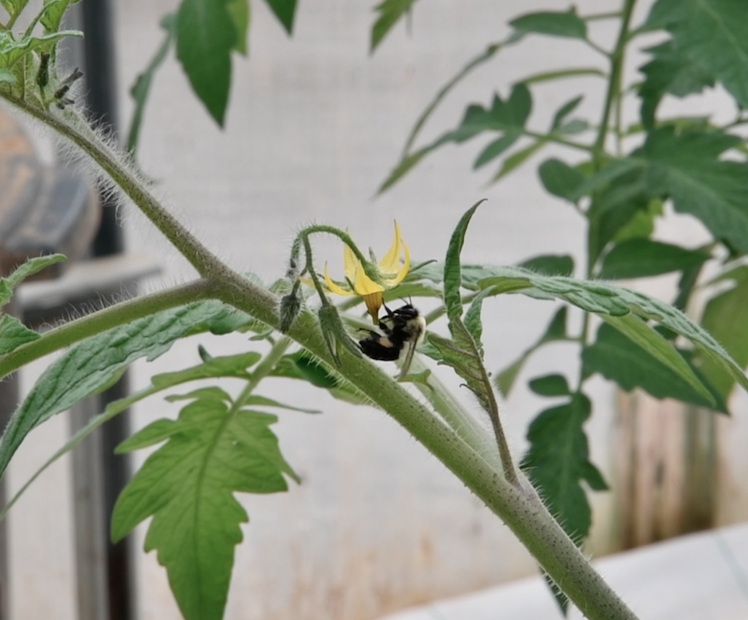COOKEVILLE – Tennessee Tech University has become the 75th educational institution in the nation to be certified as an affiliate of the Bee Campus USA program, designed to marshal the strengths of educational campuses for the benefit of pollinators.
“Tech is the second campus in Tennessee to be added to Bee Campus USA’s affiliate list,” said DeLayne Miller, Tech’s sustainability manager.
Tennessee Tech joins more than 150 other cities and campuses across the country united in improving its landscapes for pollinators.
“We are very excited about being a Bee Campus USA,” Miller said. “This doesn’t necessarily mean that we have beehives on campus, which we do at Shipley Farm, but that we are making efforts in our landscaping and grounds to support pollinators on the Tennessee Tech campus. We have an increasing amount of green space central to our campus, which includes native and flowering plants.”
Three of the relatively new gardens on campus are the Native Plant Garden behind Pennebaker Hall, managed by botany students and biology professor Shawn Zeringue-Krosnick; the Tech Village Garden, managed by the Tech Food Pantry and friends; and a pollinator garden located on the side of campus close to the athletic performance center.
There are also courses and workshops offered at Tech that focus on pollinators and integrated pest management and a committee that maintains a campus pollinator habitat plan. Students, faculty and staff are invited to be a part of that.
To raise awareness about the plight of pollinators, Tech has published a webpage to disseminate information to the campus and external communities, including Tech’s Integrated Pest Management Plan, a list of native Tennessee plants, links to student and faculty research into pollinator issues, and other information including upcoming events.
One upcoming event is a movie night set for Thursday, Oct. 24, at 7 p.m. Bee Movie will be shown in the STEM Center and Bruce Greene will have a hive on display at that time.
Bee City USA and Bee Campus USA are initiatives of the Xerces Society for Invertebrate Conservation, a nonprofit organization based in Portland, Oregon, with offices across the country. Bee City USA’s mission is to galvanize communities and campuses to sustain pollinators by providing them with healthy habitat, rich in a variety of native plants and free of pesticides. Pollinators like bumble bees, sweat bees, mason bees, honey bees, butterflies, moths, beetles, flies, hummingbirds and many others are responsible for the reproduction of almost 90% of the world’s flowering plant species and one in every three bites of food we consume.
“The program aspires to make people more PC—pollinator conscious, that is,” said Scott Hoffman Black, Xerces’ executive director. “If lots of individuals and communities begin planting native, pesticide-free flowering trees, shrubs and perennials, it will help to sustain many, many species of pollinators.”
According to Bee Campus USA founder Phyllis Stiles, “Each certified campus must renew their certification each year and report on accomplishments from the previous year. Other institutions of higher education are invited to explore completing the application process outlined at beecityusa.org.”
For more information about Bee Campus USA – Tennessee Tech University, visit www.tntech.edu/sustainability/bee-campus-usa.php









